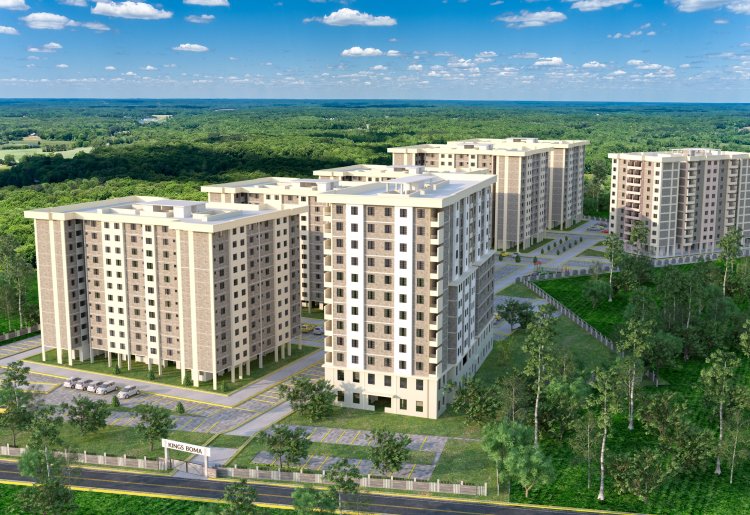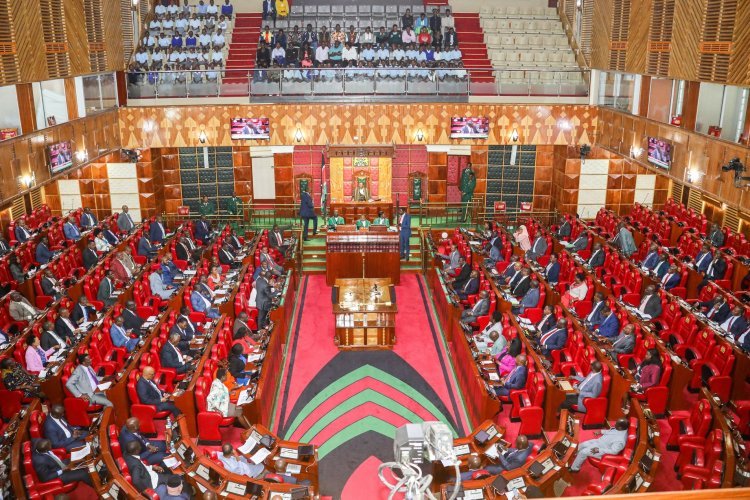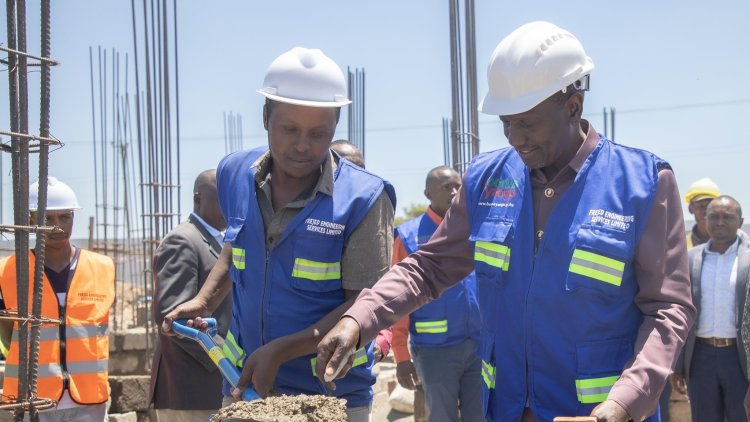High Court Gives Green Light For Affordable Housing Bill
This means that Parliament is allowed to continue debates on the Bill before it is assented to law by President William Ruto.

The High Court sitting in Kisumu on Monday, March 4 allowed Parliament consisting of the National Assembly and the Senate to continue debating the Affordable Housing Bill after it threw out a petition challenging its procession.
This means that Parliament is allowed to continue debates on the Bill before it is assented to law by President William Ruto.
Lawrence Omule Apiyo acting as the petitioner had opposed the Bill arguing that it had not been subjected to satisfactory public participation before it was tabled to Parliament for debate.
"The third respondent (National Assembly) cannot be faulted for the manner in which it has conducted public participation in respect of the Affordable Housing Bill No 75 of 2023," the judgement read in part.

The National Assembly in session on June 14, 2023. /PARLIAMENT OF KENYA
"This court finds that public participation conducted by the third respondent was effective and constitutionally compliant."
The petitioner had listed the Attorney General, the Cabinet Secretary for Lands and the National Assembly as respondents in the case.
Justice Mwanaisha Sharif noted that public hearings and consultations with stakeholders and experts were concluded on January 30, 2024, and the Affordable Housing Bill had already undergone a second reading before Parliament and it was endorsed by Members of Parliament (MP).
The judge added that public participation conducted by Parliament was effective and constitutionally compliant, further stating that the Bill will provide a legal framework upon which the government will implement the Affordable Housing Levy and that the clerk of the National Assembly invited stakeholders and technical experts on January 12, 2024, and there were public hearings in 20 counties.
The Bill was brought before the House by the Majority Leader in the National Assembly Kimani Ichungwah on December 4, 2023.
However, Apiyo argued that the period for public participation was shrunk from 14 to three days before it was sent to the departmental committee on Housing, Urban Planning and Public Works and that of Finance and National Planning.
The Clerk of the National Assembly had submitted that the public was invited to present their memoranda on December 9, 2023, and gave a deadline of December 28, 2023, though Apiyo believed that the public participation was not adequate and effective.
He attributed this to the marginalised not being considered as they were not allowed to submit their views.
Furthermore, according to the petitioner, there was no awareness, involvement and feedback mechanism but what happened was cosmetic public participation, claiming in addition that the government had no intention of facilitating adequate and effective public participation.
Housing Principal Secretary (PS) Charles Hinga however noted that the government sought to provide a legal framework for the Housing Levy after the High Court declared section 84 of the Finance Act unconstitutional.
Hinga added that the petition wanted to interfere with a constitutional process, yet the government was planning to construct four million houses at the end of the current term, According to him, the submission of memoranda was just one of the ways used for public participation.
The Bill is set to be considered by the Senate for concurrence given that certain components of the proposed amendments pertain to the jurisdiction of county governments.







